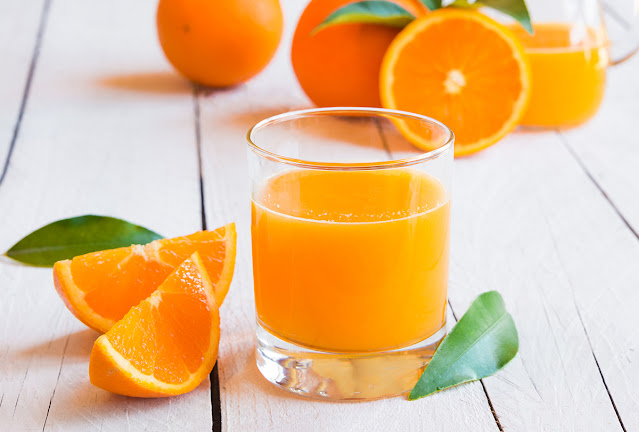Deciphering the Connection between
Acidity and the Acidity of Orange Juice.

Orange juice is a common ingredient in
many homes because of its high vitamin C concentration and refreshing flavor.
Still, many people wonder if orange juice makes them more acidic, especially
those who are prone to heartburn or acid reflux. It's possible to find a
balance between indulging in this citrus treat and preserving digestive comfort
by comprehending the dynamics of orange juice and acidity and using mitigating
factors.
Does Acidity Occur From Orange Juice?
Because orange juice contains citric
acid, it is naturally acidic. Although this acidity might improve the juice's
taste profile, some people may find acidity-related discomfort as a result of
it. Orange juice's effects might vary depending on a person's underlying
digestive issues or sensitivity to acid reflux.
Orange juice acidity mitigation:

The dilution with water
Orange juice's acidity can be lessened by
diluting it with water. This lessens the juice's acidity and makes it easier on
the stomach for people who are sensitive to it. By varying the proportion of
orange juice to water, people can discover a balance that best fits their
stomach tolerance and taste preferences.
Complementing Alkaline Foods.
Acidity may be balanced by eating meals high in alkaline substances such as orange juice. Orange juice goes well with whole grains, bananas, and melons, among other things. These less acidic choices can help make the juice more palatable to the stomach by balancing its acidity
Including Baking Soda
If you're looking for a quick fix, you
may neutralize acidity in orange juice by mixing a bit of baking soda into it.
This technique should only be applied in moderation, though, as consuming too
much baking soda may have unintended health consequences.
Selecting Low-Acidity Types
In terms of acidity, oranges are not made
equally. Choosing orange types with low acidity, like Miami, can be a proactive
way to reduce the acidity of orange juice. These kinds are typically easier on
the digestive tract.
Opting for Freshly Squeezed
Orange juice that has been freshly
squeezed could have fewer chemicals and preservatives, which could increase its
acidity. Your orange juice's purity and acidity may be more precisely controlled
when you make it at home.
In summary, even though orange juice
naturally contains acid, there are useful methods to make it less harsh on the
stomach for people who are susceptible to acid reflux disease. People can still
get the nutritional advantages of orange juice without sacrificing their
comfort level when they dilute it, pair it with alkaline meals, or select
low-acidity variants.
Heartburn and Acidity throughout Ramadan
Now that Ramadan has arrived, we're all
eager to enhance our thoughts and emotions with spiritual well-being. But
there's no denying how difficult it may be at times. During Ramadan, acidity,
digestive problems, and bloating are prevalent. Because of the altered pattern
during Ramadan, people are prone to suffer this. In addition, eating fried food
during if tar and going 13–14 hours without eating might cause acidity. Here
are a few strategies to prevent acid reflux and eliminate heartburn on an empty
stomach.
Light Eating

Eating light at first and working your
way up to heavier foods is one of the best ways to prevent acidity and
heartburn. This will make it easier for the stomach to tolerate fried foods
like parkas and samosas.
Drink enough fluids
Maintaining proper hydration and fluid
intake throughout Ramadan is another essential tip for maintaining a healthy
digestive tract. This will stop bloating in addition to preventing dehydration.
Sleep Routine
Avoiding going to bed right away after tar is another piece of advice to abide by throughout Ramadan. If tar and
napping should be separated by at least two or three hours. It will assist in
preventing acid reflux disease and prevent heartburn.
Choosing the right foods
To prevent these stomach issues, it is
essential to make the proper dietary choices during shore and if tar. Foods
that cause acidity and heartburn should be avoided, while those that prevent
acid reflux must be picked. These three foods should become a regular part of
your if tar and shore meals.
Dates: Since dates are high in fiber and
enhance stomach motility, they must be used to break fasts. Alkaline salts,
which lessen acidity and support the digestive tract, are also abundant in
dates.
Cucumber: Because it avoids acidity and
keeps the body hydrated, cucumber is a great addition to the Ramadan diet. It
may be mixed with yogurt or added to salads. It's an






0 Comments